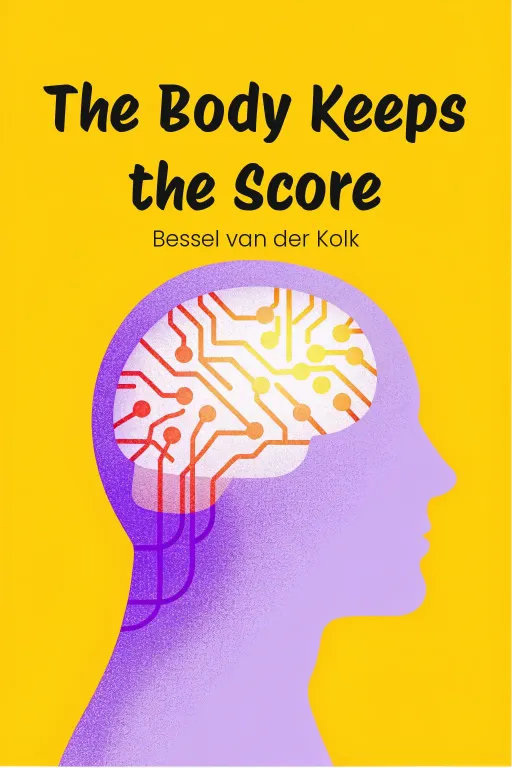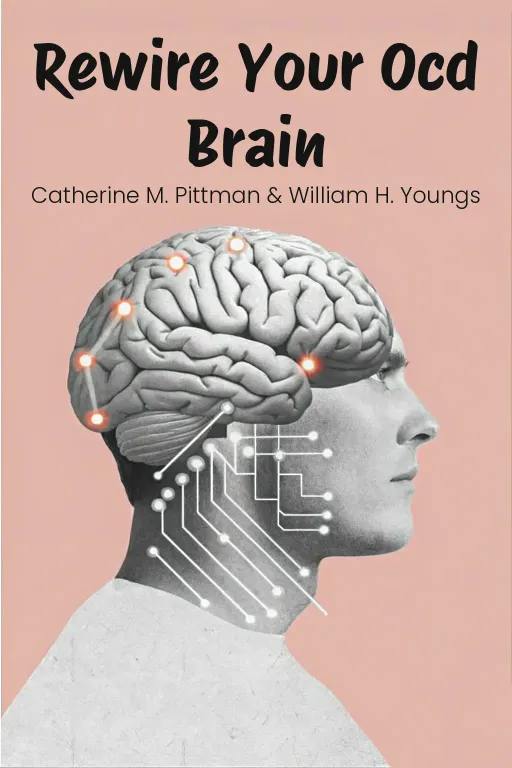
The Body Keeps the Score
Psychology
Bessel van der Kolk
A Profound Exploration of Trauma: A Summary of "The Body Keeps the Score"
Bessel van der Kolk's "The Body Keeps the Score" constitutes a signal contribution to trauma studies, offering a meticulously researched and clinically informed exploration of trauma's pervasive impact on the mind, body, and brain. Van der Kolk masterfully synthesizes decades of research, patient narratives, and advancements in neuroscience to construct a compelling argument for holistic and integrative therapeutic approaches. Rejecting a purely psychopharmacological or cognitive-behavioral approach, the author advocates for treatments that engage the body as a primary site of both trauma and healing, underscoring the potential of modalities such as yoga, EMDR, neurofeedback, and mindfulness in fostering resilience and recovery.
The Multifaceted Nature and Profound Repercussions of Trauma
The book commences with an incisive analysis of trauma's definition and ubiquitous presence in contemporary society. Far from being confined to catastrophic events such as war or natural disasters, trauma encompasses a spectrum of adverse experiences, subtly and profoundly impacting individuals across all demographics. The author deftly elucidates the staggering prevalence of childhood abuse and domestic violence. Van der Kolk incisively argues that trauma fundamentally disrupts an individual's sense of safety, engendering a state of chronic hyperarousal and psychological dysregulation.
Echoing throughout the narrative is a recurring emphasis on the inextricable bond between emotional and physical well-being. Van der Kolk posits that trauma is not merely a psychological construct but also a deeply embodied experience, leaving indelible marks on the body's physiology. The author elucidates how traumatic events can overwhelm the brain's regulatory mechanisms, particularly the delicate interplay between the amygdala and the prefrontal cortex, resulting in enduring states of fear, anxiety, and dissociation. Moreover, the book underscores the devastating impact of childhood trauma on development, highlighting how adverse childhood experiences can distort emotional regulation, social interactions, and attachment patterns, with ramifications that extend far into adulthood.
Delving into the neurobiological underpinnings of trauma, Van der Kolk elucidates how traumatic experiences can alter brain chemistry, disrupt memory processing, and trigger chronic activation of the fight-or-flight response. The author masterfully illustrates how the brain encodes traumatic memories differently from ordinary memories, often resulting in fragmented and disjointed recollections that can manifest as intrusive flashbacks and debilitating emotional distress. This exploration constitutes a critical intervention, allowing the reader to understand how the body becomes a repository for trauma, retaining memories and sensations that can be triggered years after the initial event.
The Physiology of Trauma: Reconnecting the Mind and Body
A pivotal section of the book delves into the physiology of trauma, emphasizing the profound connections between the body and the brain. Drawing on Polyvagal Theory, Van der Kolk elucidates how trauma can disrupt the autonomic nervous system, leading to dysregulation in emotional and social engagement. This disconnection from the body's sensations can manifest as hypervigilance, dissociation, and a profound sense of alienation from one's own physical being.
The author offers a compelling case for the integration of body-based therapies in trauma treatment, advocating for practices such as yoga, somatic experiencing, and psychomotor therapy, which aim to restore a sense of embodiment and reconnect individuals with their physical sensations. Through carefully designed experiments, the positive impact of creative, playful, and rhythmic activities in re-establishing social connection and fostering emotional stability is illuminated. Van der Kolk compellingly argues that healing from trauma necessitates a reactivation of the social engagement system, creating experiences that foster physical connections and encourage emotional expression.
One of the more innovative aspects of the book is its exploration of the correlation between trauma and autoimmune diseases. Revealing research conducted in collaboration with specialists from Massachusetts General Hospital, the author illuminates how a history of incest can lead to immune dysfunctions, resulting in chronic vigilance and hypersensitivity within the body. This exploration underscores the importance of addressing the emotional ramifications of trauma in conjunction with its physical manifestations, advocating for holistic approaches to treatment that acknowledge the interconnectedness of mind and body.
Therapeutic Approaches: Integrating Mind and Body
The latter portion of the book is dedicated to a comprehensive exploration of therapeutic approaches, advocating for a holistic integration of psychotherapy, body-based therapies, neurofeedback, and artistic expression. Van der Kolk meticulously examines the potential of Cognitive Behavioral Therapy (CBT), Eye Movement Desensitization and Reprocessing (EMDR), and Internal Family Systems (IFS) in facilitating narrative processing and addressing maladaptive thought patterns. He offers a cogent argument for the transformative power of EMDR in facilitating memory integration and reducing emotional distress, particularly in cases of PTSD.
The author equally emphasizes the importance of body-based therapies such as yoga, somatic experiencing, and psychomotor therapy in restoring a sense of embodiment and self-regulation. By reconnecting individuals with their physical sensations, these modalities enable the release of pent-up emotions and the reclamation of physical agency. Furthermore, Van der Kolk explores the potential of neurofeedback in recalibrating brainwave activity, enhancing emotional regulation, and fostering mental clarity. Through case studies and clinical examples, the book illuminates how neurofeedback can facilitate emotional healing and restore cognitive function, even in individuals with severe trauma-related disorders.
Advocacy and the Future of Trauma-Informed Care
The book culminates in a powerful call for advocacy and systemic change, emphasizing the need for trauma-informed care across various sectors, including healthcare, education, and the justice system. Van der Kolk addresses the pervasive issue of misdiagnoses, highlighting the limitations of the DSM-5 and advocating for the recognition of Developmental Trauma Disorder (DTD) as a distinct diagnostic category. He underscores the importance of a nuanced understanding of trauma's impact on mental health and the need for diagnostic systems that account for social and relational factors.
Critically, the author emphasizes that trauma is a public health issue that demands urgent attention and systemic solutions. By integrating trauma awareness into institutions, supporting early prevention, recognizing the link between trauma and destructive behaviors, and providing access to comprehensive treatment, we can foster a society that prioritizes healing and resilience.
"The Body Keeps the Score" is a monumental work that synthesizes rigorous scientific research with compassionate clinical insights, offering a compelling vision for trauma recovery. Van der Kolk's eloquent synthesis provides essential knowledge that empowers individuals, clinicians, and policymakers alike to address and alleviate the profound consequences of trauma. Its enduring influence promises to inform therapeutic practices and facilitate systemic changes that promote healing, resilience, and a more compassionate world.









